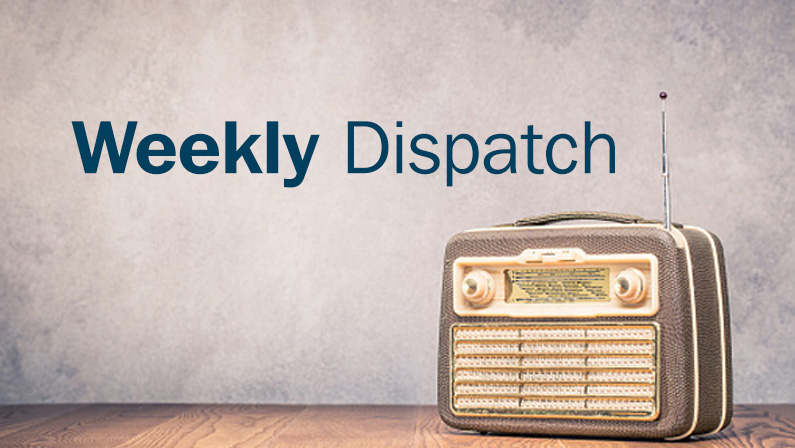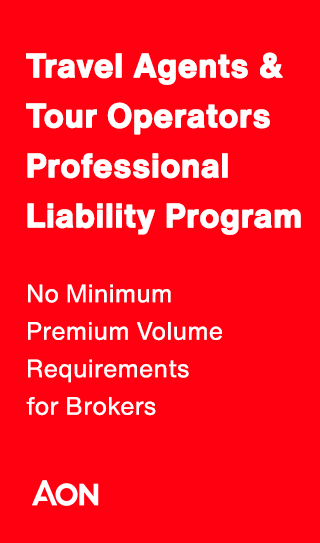News
Conn.: Minimum wage increases $1
Gov. Ned Lamont reminded residents last week that the minimum wage in Connecticut is increasing from $12 per hour to $13 per hour. This change went into effect on Aug. 1, 2021. This increase is a direct result of legislation Lamont enacted two years ago, which increases the state’s minimum wage each year over a five-year period. Next year, the minimum wage will increase to $14 per hour, and it will raise one more time to $15 per hour in 2023.
Conn.: Aflac selected as claims administrator for paid leave
Gov. Lamont announced last week that Aflac has been selected to serve as the claims administrator for the Connecticut Paid Leave Authority. As the claims administrator, Aflac will accept applications, determine eligibility and administer benefits for paid leave. Applicants will have flexible options for submitting applications for paid leave, including online, via email or by calling Aflac directly. As a result of this selection, Aflac plans to open new offices in Windsor, where it will locate approximately 150 jobs.
N.J.: SBA offers disaster assistance for residents and businesses after flooding
Gov. Phil Murphy announced on Tuesday that New Jersey businesses and residents affected by the flash flooding that occurred on July 12, 2021, may apply for low-interest disaster loans from the U.S. Small Business Administration. Residents and businesses located in Burlington, Camden, Gloucester, Hunterdon, Mercer or Warren counties are eligible for assistance. According to the Federal Emergency Management Agency, flooding is the most common natural disaster in the U.S. PIA Northeast has resources to help members educate their clients about flooding and flood insurance. For more information, PIA Northeast members can access PIA’s Flood Insurance Tool Kit.
N.J.: Murphy and Persichilli recommend masking indoors
Gov. Murphy and Department of Health Commissioner Judy Persichilli announced last week that they strongly recommend that both vaccinated and unvaccinated residents wear masks in indoor settings when there is increased risk. This recommendation follows new Centers for Disease Control and Prevention guidance about masking. High-risk indoor settings include crowded indoor settings; indoor settings involving activities with close contact with others who may not be fully vaccinated; indoor settings where the vaccine status of other individuals in the setting is unknown; and indoor settings where an individual is immunocompromised or at increased risk for severe disease.
N.Y.: PIANY seeks industry stars—nominate someone today
PIANY is calling for nominations for its 2021 Distinction of Professionalism awards, and nominations are due Tuesday, Sept. 7, 2021. The association will honor insurance professionals who exemplify the qualities and actions that serve as a model of excellence in the insurance industry and for the independent agency system. Nominations are being sought for these awards: the Professional Agent of the Year award, the Distinguished Insurance Service award, the Community Service Award and the Company Person of the Year award.
N.Y.: de Blasio announces New York City to require vaccines for indoor spaces
New York City Mayor Bill de Blasio announced on Tuesday that the city will require proof of vaccination for indoor dining, fitness centers, and entertainment and performance venues. This requirement will go into effect Monday, Aug. 16, 2021, and will be fully enforced starting Monday, Sept. 13, 2021, as the 2021-22 school year begins. The objective of the mandate—also known as the Key to NYC Pass—is to encourage unvaccinated individuals to become vaccinated.
N.Y.: Cuomo signs legislation to allow in-person and online instruction to election workers
Gov. Andrew M. Cuomo announced last week that he signed S.1277-A/A.4257-A, which allows election workers—including election inspectors, poll clerks and election coordinators—to be trained and tested online or in-person. Some in-person training still will be required for specialized circumstances, such as the use of voting machines. Additionally, the legislation removes the requirement for election workers to take the training course every year. They still will need to pass the exam every year, but they will need to take course only once.
Compliance
N.Y.: Due today: Airborne infectious disease prevention plans
As part of the New York Health and Essential Rights Act—also known as the NY HERO Act—employers are required either to adopt the Department of Health model Airborne Infectious Disease Exposure Prevention Plan, or establish an alternative plan that meets or exceeds the DOL standards by today. While the plan must be adopted by today, implementation of the plan is not required unless the New York state commissioner of health designates an airborne infectious disease as a highly contagious communicable disease that presents a serious risk to the public. In addition to this deadline, employers are required to make the exposure prevention plan available to all of their employees no later than Saturday, Sept. 4, 2021. For more information on the NY HERO Act—including employer requirements regarding the prevention plan and workplace safety committees—watch The Break—NY HERO Act Part I and The Break—NY HERO Act Part II on PIA Northeast News & Media’s media page.
Advocacy
FIO repeal bill introduced in U.S. House
Legislation (H.R.4866) that would repeal the Federal Insurance Office was introduced in the U.S. House of Representatives on July 30, 2021. The bill—also known as the Federal Insurance Office Abolishment Act of 2021, and introduced and co-sponsored by Rep. Benjamin Lee Cline, R-Va., and Rep. Thomas P. Tiffany, R-Wis., respectively—would protect the successful state insurance regulatory system from federal encroachment, an initiative that PIA has supported since the establishment of the FIO in 2010. PIA supports the repeal of the FIO because it threatens to create federal regulations that would remove states’ authority in the insurance industry. In addition to H.R.4866, PIA supports S.524—the House bill’s counterpart—which was introduced in the U.S. Senate on March 3, 2021. For more information about PIA’s efforts to repeal the FIO and for updates on this legislation, visit the FIO page on the PIA Advocacy blog.
NFIP continuous coverage bill introduced
U.S. House Reps. Katherine Anne Castor, D-Fla., and William Blaine Luetkemeyer, R-Mo., introduced H.R.4699—also known as the Continuous Coverage for Flood Insurance Act—to the U.S. House last week. The bill would allow consumers to purchase a policy from the National Flood Insurance Program for the same premium they paid previously, if they return to the NFIP after leaving for a private flood policy. This bill is important because, if consumers need to return to the NFIP for flood coverage, they would not be penalized for leaving with higher rates. To stay updated on this legislation, watch the NFIP page on the PIA Advocacy blog.
N.J.: DOBI issues recoupment order for NJPLIGA
Recently, the Department of Banking and Insurance issued a recoupment order that grants member insurers of the New Jersey Property-Liability Insurance Guaranty Association permission to surcharge their policyholders. These member companies are prohibited from recouping this assessment from their insureds without the DOBI’s permission. But, the new order permits NJPLIGA member companies that have paid their 2021 assessment to impose a surcharge in an amount not to exceed 0.6% on policies, which are issued or renewed on or after Friday, Oct. 1, 2021. However, if the insurer has not fully recouped any previous NJPLIGA assessment, a surcharge not to exceed 0.6% may be imposed. The recoupment order is in response to a decision that the NJPLIGA board of directors made to assess member insurers 0.6% of each carrier’s property/casualty net direct written premium. Notices for the 2021 NJPLIGA assessment were issued on Aug. 2, 2021, with payments on net balances due Wednesday, Sept. 15, 2021.
N.J.: NJPIAPAC welcomes new chair
New Jersey PIAPAC welcomed Christopher J. Powell, partner at Hardenbergh Insurance Group in Marlton, as its new chair last month. To get to know him, PIA Northeast PAC Coordinator & Public Policy Analyst Katherine Slye-Hernandez, Ph.D., interviewed Powell and learned about his experience with New Jersey politics, his career in the insurance industry and what he hopes he will achieve as NJPIAPAC’s new chair.
Technical
FEMA delays RR 2.0 rating engine
FEMA notified carriers participating in Risk Rating 2.0 (also known as Write-Your-Own carriers) that the RR 2.0 engine will be made available on Monday, Aug. 16, 2021, for quoting and policy issuance for Phase I policies. Originally, the rating engine was set to become available to WYOs on Aug. 1. However, the agency said that it will notify WYOs when the new rates may be used for quoting and issuance, indicating that the rating engine still might not be available by Monday, Aug. 16, 2021. To stay updated on RR 2.0, watch the Risk Rating 2.0 page on the PIA Advocacy blog and see the related article in the September issue of PIA Magazine.
Know your state’s rules about notice time frames
Do you know how many days you have to notify your clients of the cancellation or nonrenewal of their personal-lines insurance policies? It varies from state to state. In Connecticut, insurance agents must notify their insureds at least 60 days in advance of a cancellation or nonrenewal. However, in New Hampshire and Vermont, the notification period is at least 45 days in advance. The 45-day rule also applies in New York state—as long as the policy has been in place for more than 60 days. And, in New Jersey, the notification time frame is 30 days in advance. And remember, the rules of notification are different in each state if the nonrenewal or cancellation is a result of nonpayment.
N.H.: 2022 WC market remains stable in Granite State
The New Hampshire Insurance Department announced on Tuesday that it approved a rate proposal filed by the National Council on Compensation Insurance that will reduce voluntary loss costs by an average of 8%. According to the NHID, loss costs have decreased each of the last nine years—a total of 50% over that period of time.
Register now
Sept. 14: CTYIP Golf Open




